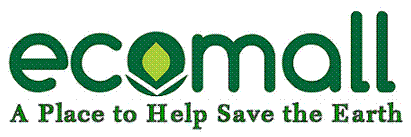

A CLOSER LOOK AT COTTON



A CLOSER LOOK AT COTTON

Even if we focus only on the most obvious cotton products - bedding and clothing - odds are that you are literally surrounded by cotton almost every moment of every day. With this degree of contact, it's worth knowing the difference between organic and conventional cotton.
For example: a third of a pound of synthetic fertilizers and pesticides are used in the growth and production of every cotton t-shirt you pull over your head. Aldicarb, cotton's second best-selling insecticide, is acutely poisonous to human in amounts as small as a single drop absorbed through the skin. At least seven out of the top fifteen pesticides used on conventionally grown cotton crops are classified as known carcinogens by the Environmental Protection Agency.
And as if that weren't enough, during the conversion of cotton into conventional clothing, many more hazardous materials are used and added, including silicone waxes, harsh petroleum sours, softeners, heavy metals, flame and soil retardants, and even formaldehyde.
With all these additives, you may wonder why conventional cotton is often so much cheaper than organic.
The main reason that organic goods are more expensive is that agrochemical agriculture is heavily subsidized by taxpayer money, while organic farming receives no subsidies at all. In other words - you are paying more for the non-organic stuff, but you don't notice because it comes out of your taxes. Furthermore, intensively-farmed crops are, by design, cheaper to produce - in the short term. In the long-term, conventional farming results in far inferior crops that wreak havoc on the land and throughout surrounding communities.
The good news is, at no point in the growth or production of organic cotton fibers are chemicals used. Although cultivation requires heavy irrigation, most organic cotton farmers in the U.S. practice responsible water management. The Texas Organic Cotton Marketing Cooperative, for example, was formed to create a stable and consistent supply of certified cotton fiber through a vision that involves a strong commitment to the earth - replenishing the soil, protecting the purity of air, water, and food supplies, and preserving precious resources.
You don't have to immediately throw away everything you own that is made from conventional cotton. Instead, whenever something wears out (a bath towel, a sweatshirt, your sheets and blankets, etc.), consider replacing that item with an organic product. In addition to organic cotton, try organic hemp and natural wool products - all of which are long-lasting, life supporting, safe for those with sensitivities, and the best choice for improving the health of farmers, the earth, and ultimately all of us. Choosing organic feels right - not only for your skin, but for your conscience.
You'll get a good night's sleep - and be healthier while you're at it.
Click below to e-mail this article to a friend |
|---|
Written by: Sarah Williams, No Feathers Please
RELATED LINKS:

| * * * IN-HOUSE RESOURCES * * * |
|---|